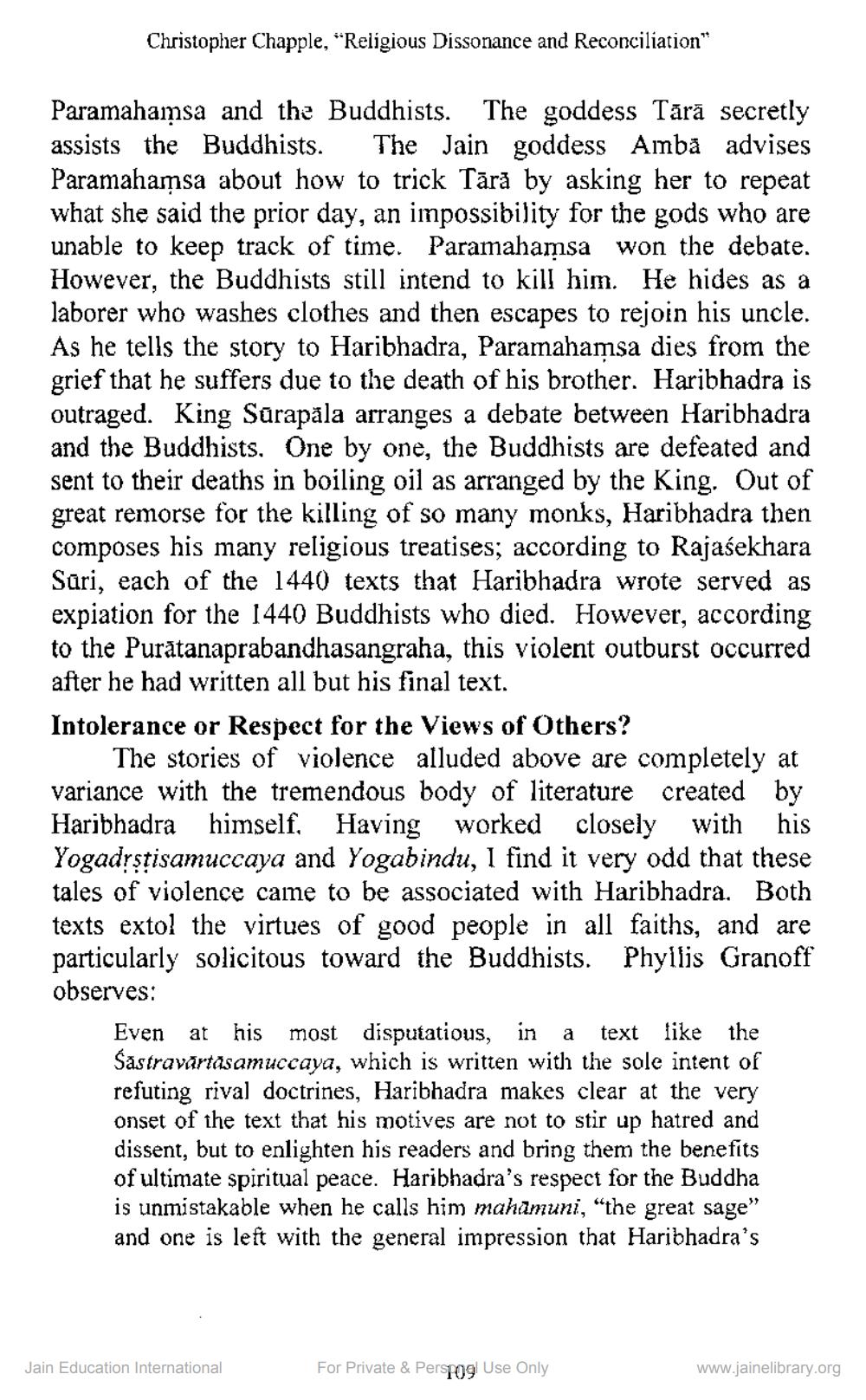Book Title: Religious Dissonance and Reconciliation The Haribhadra Story Author(s): Christopher Key Chapple Publisher: Z_Lessons_of_Ahimsa_and_Anekanta_for_Contemporary_Life_014006.pdf View full book textPage 8
________________ Christopher Chapple, "Religious Dissonance and Reconciliation" Paramahamsa and the Buddhists. The goddess Tārā secretly assists the Buddhists. The Jain goddess Ambă advises Paramahamsa about how to trick Tārā by asking her to repeat what she said the prior day, an impossibility for the gods who are unable to keep track of time. Paramahamsa won the debate. However, the Buddhists still intend to kill him. He hides as a laborer who washes clothes and then escapes to rejoin his uncle. As he tells the story to Haribhadra, Paramahamsa dies from the grief that he suffers due to the death of his brother. Haribhadra is outraged. King Surapala arranges a debate between Haribhadra and the Buddhists. One by one, the Buddhists are defeated and sent to their deaths in boiling oil as arranged by the King. Out of great remorse for the killing of so many monks, Haribhadra then composes his many religious treatises; according to Rajasekhara Sari, each of the 1440 texts that Haribhadra wrote served as expiation for the 1440 Buddhists who died. However, according to the Puratanaprabandhasangraha, this violent outburst occurred after he had written all but his final text. Intolerance or Respect for the Views of Others? The stories of violence alluded above are completely at variance with the tremendous body of literature created by Haribhadra himself. Having worked closely with his Yogadṛṣṭisamuccaya and Yogabindu, I find it very odd that these tales of violence came to be associated with Haribhadra. Both texts extol the virtues of good people in all faiths, and are particularly solicitous toward the Buddhists. Phyllis Granoff observes: Even at his most disputatious, in a text like the Šāstravārtāsamuccaya, which is written with the sole intent of refuting rival doctrines, Haribhadra makes clear at the very onset of the text that his motives are not to stir up hatred and dissent, but to enlighten his readers and bring them the benefits of ultimate spiritual peace. Haribhadra's respect for the Buddha is unmistakable when he calls him mahamuni, "the great sage" and one is left with the general impression that Haribhadra's Jain Education International For Private & Perspool Use Only www.jainelibrary.orgPage Navigation
1 ... 6 7 8 9 10 11 12 13 14 15 16
